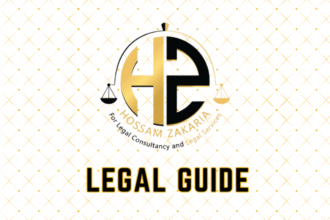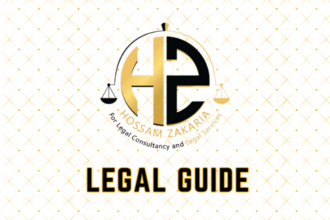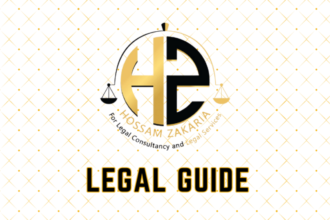Introduction: The New Frontier for Saudi Operators in UAE Aviation
In recent years, the Middle East’s private aviation sector has been propelled by robust demand, regulatory reforms, and heightened regional cooperation. At the heart of this evolution lies the growing appetite for private jet and air charter services—especially as Saudi operators consider expanding into UAE airspace. Recent legal reforms in both Saudi Arabia and the United Arab Emirates (UAE) have not only recalibrated the regulatory contours for aviation licensing but have also opened new doors for cross-border operations. For Saudi aviation businesses eyeing the lucrative UAE market, understanding the local legal landscape governing private jet and charter licensing is indispensable.
This comprehensive guide delves into the current UAE and regional legal frameworks, dissects licensing pathways for Saudi operators, and provides expert consultancy strategies for securing compliance and maximizing business advantage. The advice herein draws on the latest legislative materials from official sources including the UAE Ministry of Justice, UAE General Civil Aviation Authority (GCAA), and recent Federal Decree updates. Whether you represent an aviation startup, an established Saudi carrier, or a consultancy advising on GCC cross-border operations, this article offers valuable insights and actionable legal recommendations tailored for executive decision-makers, HR professionals, and legal teams in the dynamic aviation sector.
Table of Contents
Regulatory Overview: UAE Law and Aviation Sector Integration
UAE GCAA Licensing Framework for Private Jet and Charter Operations
Cross-Border Opportunities for Saudi Operators in the UAE
Key UAE Law 2025 Updates and Federal Decree Developments
Licensing Process: Practical Steps and Documentation Requirements
Comparing Old and New Laws: What Saudi Operators Must Know
Case Studies and Common Scenarios
Risks of Non-Compliance and Strategies for Compliance
Future Trends: Uplifting Aviation in the UAE and Opportunities for Saudi Businesses
Conclusion and Best Practices for Saudi Aviation Market Entries
Regulatory Overview: UAE Law and Aviation Sector Integration
The Foundation: UAE Federal Laws Overseeing Civil Aviation
The UAE’s regulatory environment for civil aviation is among the most sophisticated in the Middle East, designed to attract international investment while ensuring the highest safety and operational standards. The primary governing legislation is Federal Law No. 20 of 1991, concerning the Regulation of Civil Aviation, as amended, supplemented by Cabinet Resolutions and Ministerial circulars from the GCAA. These frameworks are complemented by various executive bylaws specifying air operator requirements, aircraft registry standards, and licensing protocols.
Recent Regulatory Synergies with Saudi Arabia
Cross-border cooperation in aviation is increasingly visible as both the UAE and Saudi Arabia seek to align standards and facilitate smooth operator transitions. The GCC’s internal policy reviews and recent civil aviation memoranda (such as the Saudi-UAE MoU signed in 2023) now allow for more structured, reciprocal licensing recognition and streamline the path for Saudi operators entering the UAE market. However, local licensing and airworthiness certification criteria remain rooted in UAE law, necessitating a careful and strategic compliance approach by Saudi entities.
UAE GCAA Licensing Framework for Private Jet and Charter Operations
Licensing Types and Principal Requirements
The UAE General Civil Aviation Authority (GCAA) is charged with regulating the licensing of all private jet and air charter operations. Two principal categories pertain to Saudi private aviation firms:
- Air Operator Certificate (AOC): Required for commercial/charter and private jet operators, both for domestic UAE operations and international flights.
- Operating Permit for Foreign Air Carriers: Designed for non-UAE entities seeking one-off or recurring charter activity within UAE territory.
Key eligibility criteria include:
- Demonstrated compliance with safety and airworthiness rules
- Minimum fleet and technical specifications
- Financial fitness and insurance coverage
- Appointment of approved local legal representatives
Reference to Official Sources
GCAA Official Portal: Comprehensive details of the licensing application protocols can be accessed here, including recent circulars and forms for foreign operator applications and renewals.
Cross-Border Opportunities for Saudi Operators in the UAE
Legal Pathways for Saudi Aviation Firms
Saudi operators entering the UAE must navigate both national legislation and GCAA executive guidance. Crucially, a foreign air operator may:
- Obtain a GCAA-issued permit to conduct non-scheduled (charter) flights
- Secure wet lease arrangements with UAE-licensed operators
- Form local entities for aircraft registration or operational compliance
While Saudi nationals benefit from GCC economic agreements enabling certain privileges, compliance with UAE-specific safety and consumer protection standards remains mandatory.
Consultancy Insight
Engaging an established UAE legal consultancy is critical to streamline licensing, manage ongoing compliance, and represent operator interests in regulatory proceedings. Early due diligence helps avoid operational delays, ensures document accuracy, and addresses any business structure nuances required by UAE law.
Key UAE Law 2025 Updates and Federal Decree Developments
Recent Legislative Changes Affecting Charter Licensing
The UAE is actively modernizing its aviation laws, with significant amendments anticipated under Federal Decree No. 3 of 2023 and ongoing updates for 2025 scheduled for publication in the Federal Legal Gazette. Noteworthy updates relevant to Saudi operators include:
- Tighter documentation and due diligence protocols for foreign licensees
- Revised operating requirements under GCAA Circular No. 12 of 2023
- Increased oversight on cross-border data sharing and passenger screenings
- Enhanced penalties for non-compliance or breach of permit limits
Visual Suggestion
We recommend including a flow chart illustrating the updated licensing approval process for Saudi operators—starting from initial GCAA application, through document verification, up to final permit issuance.
Licensing Process: Practical Steps and Documentation Requirements
Step-by-Step Guide for Saudi Companies
- Due Diligence and Pre-Application Review: Assess eligibility, compile required corporate and technical documents, and engage local UAE counsel for guidance.
- Formal Submission: Lodge application, providing evidence of Saudi regulatory standing, aircraft registry documents, insurance certificates, operational manuals, and crew licensing proof.
- GCAA Scrutiny and Site Audit: Detailed evaluation by GCAA inspectors, including operational audits and aircraft checks.
- Issuance of Operating Permit or AOC: Upon satisfaction of all legal criteria and technical inspections. Permit is subject to ongoing compliance and periodic renewal.
Required Documents: Structured Checklist
| Document Type | Description/Requirement |
|---|---|
| Corporate Registration | Certified copies of commercial licenses/registration in Saudi Arabia |
| Aircraft Registry | Proof of registry and airworthiness from Saudi authorities and acceptance by UAE GCAA |
| Crew Qualification | Validated licenses for pilots and cabin crew, compliant with ICAO and UAE GCAA standards |
| Insurance Policies | Minimum coverage as determined by UAE GCAA (Hull, Liabilities) |
| Operational Manuals | Standard operating procedures and safety protocol documentation |
| Local Agency Details | Representative or agency appointed in the UAE for service of process |
Comparing Old and New Laws: What Saudi Operators Must Know
Structured Comparison: Legacy Laws vs. Updated Regime
| Aspect | Legacy Law | Updated Law (2023-2025) |
|---|---|---|
| Foreign Operator Permits | Permissive, simple application | Detailed scrutiny, increased documentary evidence |
| Safety Oversight | Annual audits | Randomized, unannounced compliance inspections |
| Data Sharing | Manual reporting | Mandatory digital reporting, cross-border data sharing protocols |
| Penalties | Fixed administrative fines | Escalating penalties, operational suspension, criminal prosecution (for serious breaches) |
Practical Takeaway
Saudi operators must prepare for a higher compliance threshold and should pre-emptively align their documentation and digital infrastructure to adhere to 2025 legal updates.
Case Studies and Common Scenarios
Case Study 1: Successful Licensing of a Saudi Jet Charter in Dubai
Scenario: A Riyadh-based air charter firm secures a recurring business travel contract with a UAE conglomerate. With tailored legal support, the firm rapidly completes the GCAA’s expanded due diligence process, leveraging reciprocal GCC recognition and digitally integrated reporting tools—resulting in timely permit issuance and ongoing compliance for all trips.
Case Study 2: Risk of Non-Compliance in Missing Crew Certification
Scenario: A Saudi operator attempts a scheduled charter into Abu Dhabi but lacks updated UAE-accepted crew credentials. The GCAA grounds the aircraft, imposes a penalty, and requires full re-audit before flight operations can resume, highlighting the criticality of updated documentation and UAE-aligned standards.
Hypothetical Example: Joint-Venture Expansion
A Saudi aviation firm partners with a UAE-based management company, pool resources for aircraft registry, and utilize dual staffing models to rapidly satisfy GCAA crew and operational criteria—showcasing the value of hybrid legal structures and proactive local partnerships.
Risks of Non-Compliance and Strategies for Compliance
Key Risks for Saudi Operators Entering the UAE
- Permit Lapses: Operating outside of permit validity or scope leads to operational suspension.
- Document Deficiencies: Outdated or missing airworthiness, insurance, or crew credentials can result in fines or flight bans.
- Failure of Local Representation: Gaps in local agency functions hinder regulatory communication and legal service of process.
- Non-Adherence to Consumer Protection: UAE law now mandates specific passenger rights disclosures and compensation protocols.
Strategies for Robust Legal Compliance
- Engage specialist UAE aviation law consultancies for ongoing compliance audits and permit renewals
- Implement rigorous document management systems, ensuring continuous alignment with evolving GCAA guidelines
- Utilize digital reporting in line with UAE’s data sharing mandates
- Build strategic alliances with local UAE representatives or co-operators to address legal, operational, and cultural aspects
| Risk | Penalty (Old Law) | Penalty (New Law, 2025) |
|---|---|---|
| Unauthorized Operations | AED 50,000 fine | Up to AED 250,000, suspension/revocation |
| Inadequate Documentation | Warning, administrative fine | Immediate flight ban, further penalties |
| Non-Disclosure of Passenger Rights | Not explicitly regulated | Mandatory compensation, reputational loss |
Visual Suggestion: A compliance checklist infographic for Saudi operators, itemizing each key UAE requirement, could enhance this section.
Future Trends: Uplifting Aviation in the UAE and Opportunities for Saudi Businesses
Sector Outlook and Regulatory Direction
The UAE is positioning itself as a pivotal regional hub for private luxury and business aviation, aided by legal harmonization and digital regulatory transformation. As the sector evolves, increased cooperation—fueled by strategic alliances, technological platforms, and pan-GCC initiatives—will further ease cross-border operations for Saudi and other GCC operators. Upcoming “UAE Law 2025 updates” promise continued alignment with international ICAO norms and expanded digitalization for compliance processes.
Saudi operators who invest in robust compliance frameworks and local partnerships are likely to benefit most, accelerating time-to-market and reducing regulatory friction. Ongoing engagement with legal and aviation experts remains critical to identify and act upon new legislative trends as they emerge.
Conclusion and Best Practices for Saudi Aviation Market Entries
The evolving landscape of UAE private jet and charter licensing offers exceptional opportunities for Saudi operators, but requires a sophisticated and continuous compliance effort. Success depends on:
- Pursuing early, specialist-led legal due diligence
- Building locally credible operational partnerships
- Aligning digital reporting with UAE regulatory mandates
- Actively monitoring legal developments and GCAA updates
In summary, Saudi aviation businesses poised to enter or expand within the UAE must be proactive, well-resourced, and legally astute. Firms who treat compliance as a business advantage—rather than a burden—will thrive amid regulatory reform and sector innovation. Forward-looking clients are advised to consult with experienced UAE legal advisors who can translate the latest law into operational and strategic advantage in this increasingly competitive sector.



